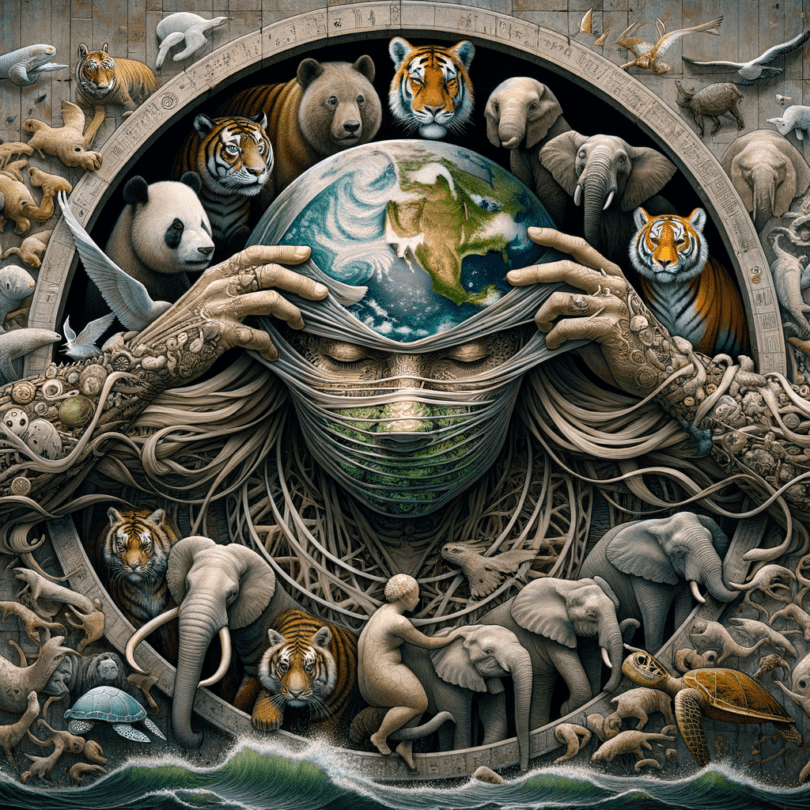It is a silent crisis, inexplicably silent, that lingers in the harsh wilderness, the lush rainforests, the deep ocean trenches, and even in our own backyards. A crisis that needs no language, yet speaks volumes about our stewardship of this planet. Today, we delve deeper into the rapidly escalating issue of endangered wildlife conservation, or as I prefer to call it, the vanishing voices of nature.
Human beings, with their insatiable thirst for growth, innovation, and conquest, have ushered in an era of unparalleled biodiversity loss. Wildlife, which has existed for millenia, is now battling the harshest predator they have ever known – extinction. Habitat loss, climate change, illegal poaching and unsustainable hunting are the primary culprits, accelerating the pace of extinction faster than our efforts to slow it down.
Species like the Amur Leopard, the Javan Rhinoceros and the Sumatran Orangutan, among others, are teetering on the edge of oblivion. With populations being limited to mere hundreds, the question looming over us is not if, but when will we hear their last cries.
Yet, amidst the deepening darkness of this reality, there are embers still glowing, fighting an uphill struggle, dedicated to making a change. Conservationists, biologists, and even ordinary citizens show us every day that hope is not lost. Whether they are charting new territories to set up sanctuaries, investing in the daunting task of captive breeding and reintroductions or leveraging advanced technologies to monitor and protect threatened species, they are the change they want to see in the world.
But these heroes are facing their own challenges. Limited funding, a lack of public awareness and support, on-the-ground dangers and governmental red tape, to name just a few. Progress is slow, and wins are few and far between, but every saved species is a testament to their dedication and courage.
The crisis we face now is not just about losing the mesmerizing aesthetic diversity that nature offers us. It’s much more complex and interconnected. Wild biodiversity loss has wider repercussions on ecosystem stability – impacting climate regulation, food production, and disease control. Losing a species is comparable to pulling a brick from a Jenga tower. We might not know whether it will cause a collapse until it’s already fallen.
To conclude, the silent crisis of endangered wildlife conservation requires a deafening response from us. And I believe we have it within us to offer just that. From adapting our lifestyles to incorporate sustainable practices to actively supporting conservation organizations, every step counts.
We need to rethink our relationship with Mother Nature, understand the value each species brings to our planet, and act to make a difference. After all, our effort today will determine what voices our future generations will get to hear. Are we prepared to take up this challenge, or will we allow the wilderness to fall silent, a haunting memory of what once was? The choice lies with us, and time is running out. The voices are vanishing, will we act before the echoes fade into obscurity?

